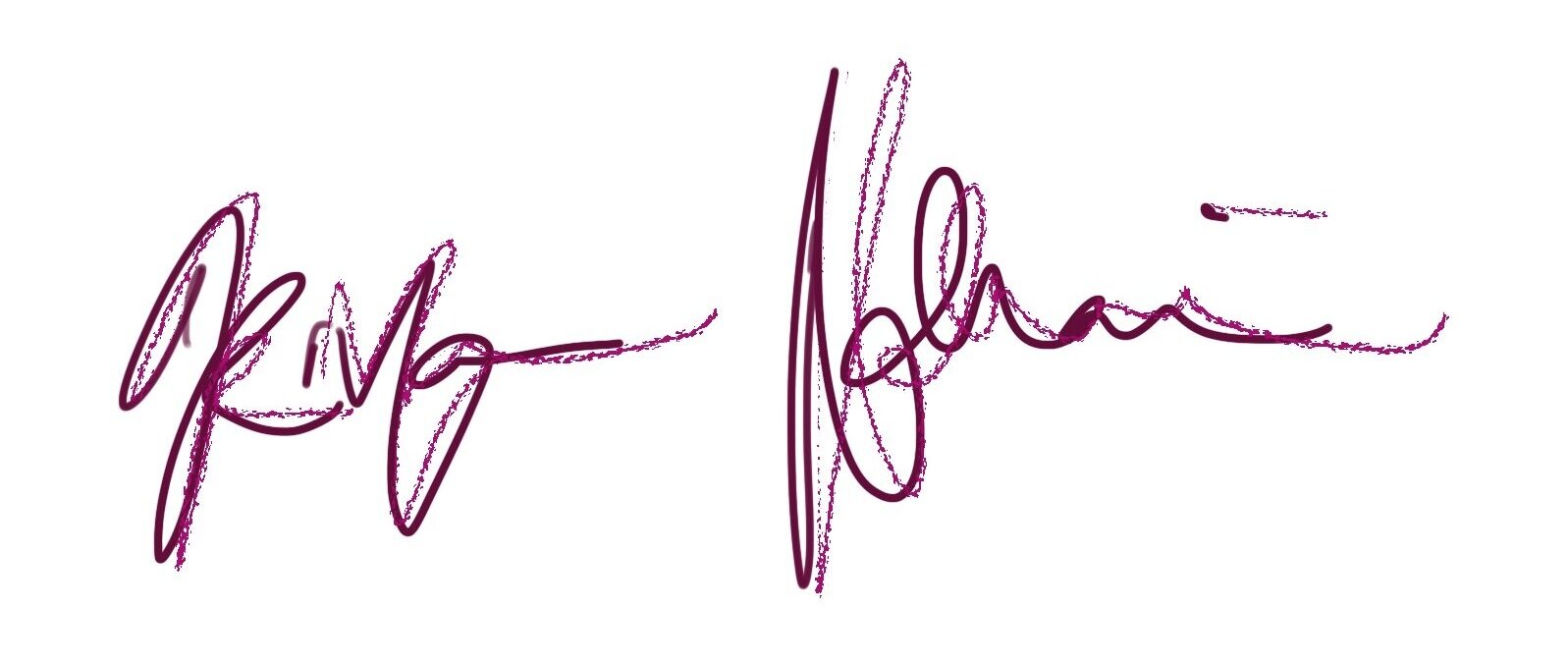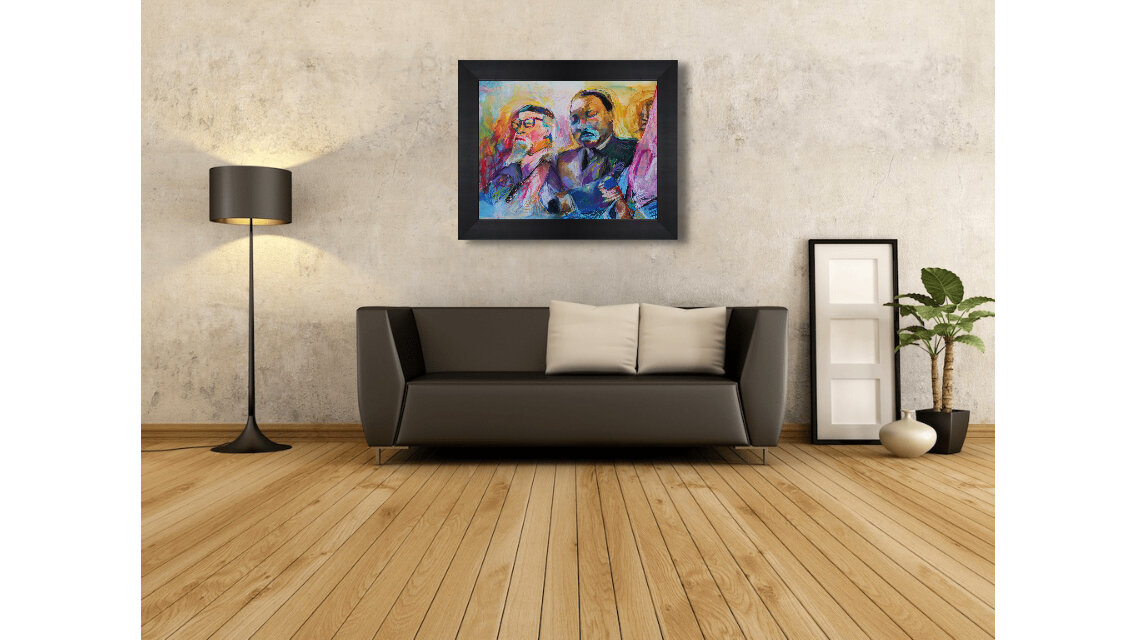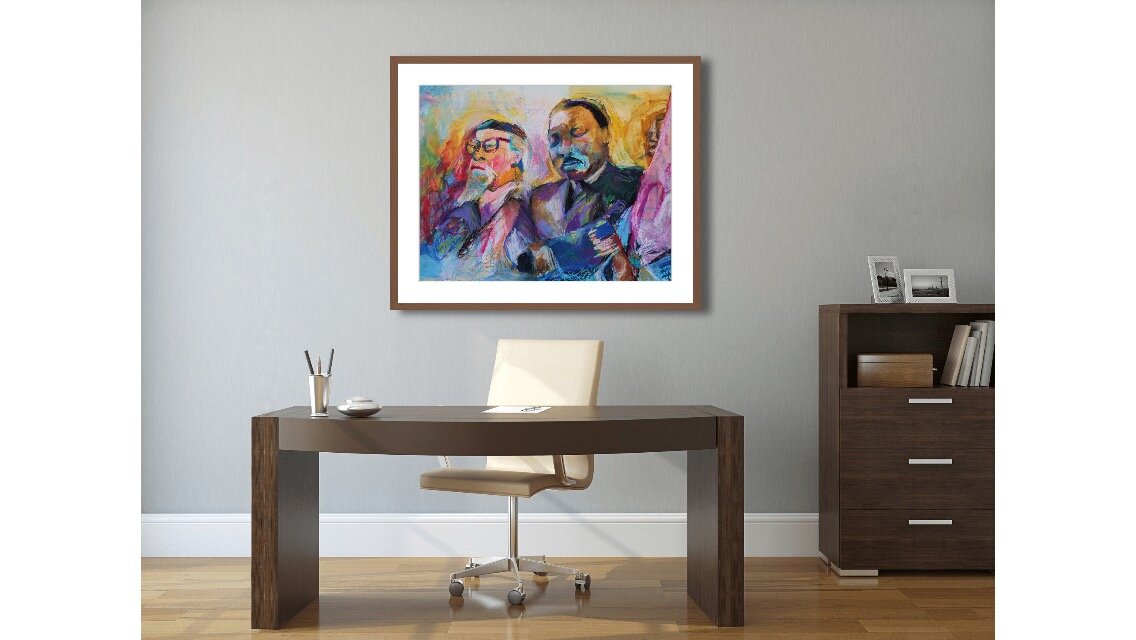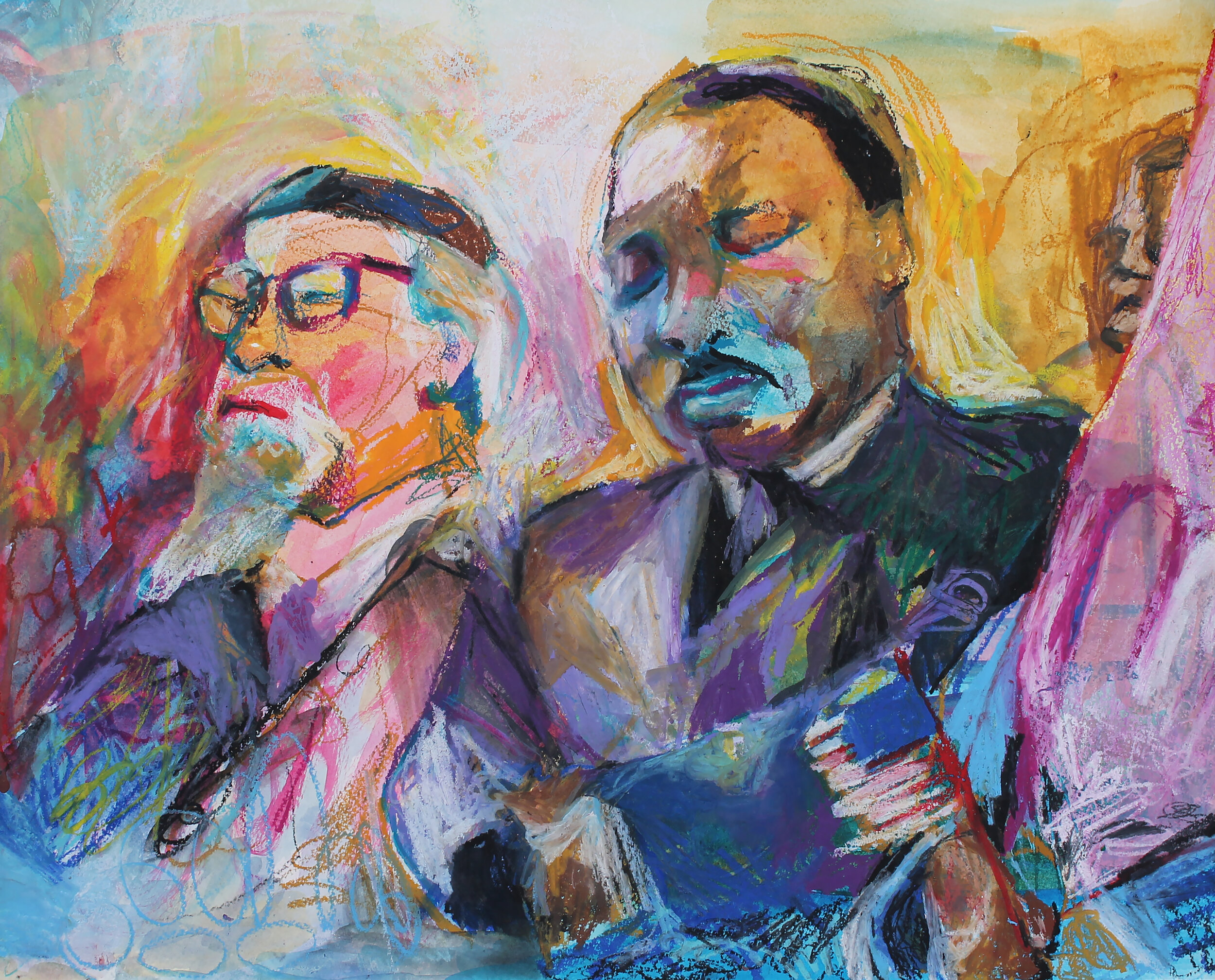Heschel/King More Than Our Tribe
We have not yet crossed the sea, the fight for peace via economic justice is not close to being over.
As King lamented, “What does it profit a man to be able to eat at an integrated lunch counter if he doesn’t earn enough money to buy a hamburger and a cup of coffee?” Beyond laws and rhetoric, if all people cannot enjoy a decent standard of living, if we cannot share our resources, and allow national upward mobility, how could true freedom or peace materialize throughout every layer of society? It’s the practical truth King tried it educate us on in 1968, and the echoes of his lamentations of our miscalculations still pound on our streets today.
We are more than our tribe. And our tribe is larger than we imagine. Perhaps that’s why people are afraid of joining with others, in fear of obliterating a sense of self and tribal identity.The Rabbi and the Reverend were filled with hope of reconciliation, as they roared from their mountaintops, as Heschel did in a 1964 speech, “The White Man on Trial”: “The tragedy of Pharaoh was the failure to realize that the exodus from slavery could have spelled redemption for both Israel and Egypt. Would that Pharaoh and the Egyptians had joined the Israelites in the desert and together stood at the foot of Sinai!”
I found both the strife and the hope in the linked arms of Heschel and King as I let loose on the canvas creating their image, connecting with their vision, feeling the warmth and power of their friendship and dreams, and resolving to somehow find my way to get up off my chair decades later, to join the rows of marchers behind them.



